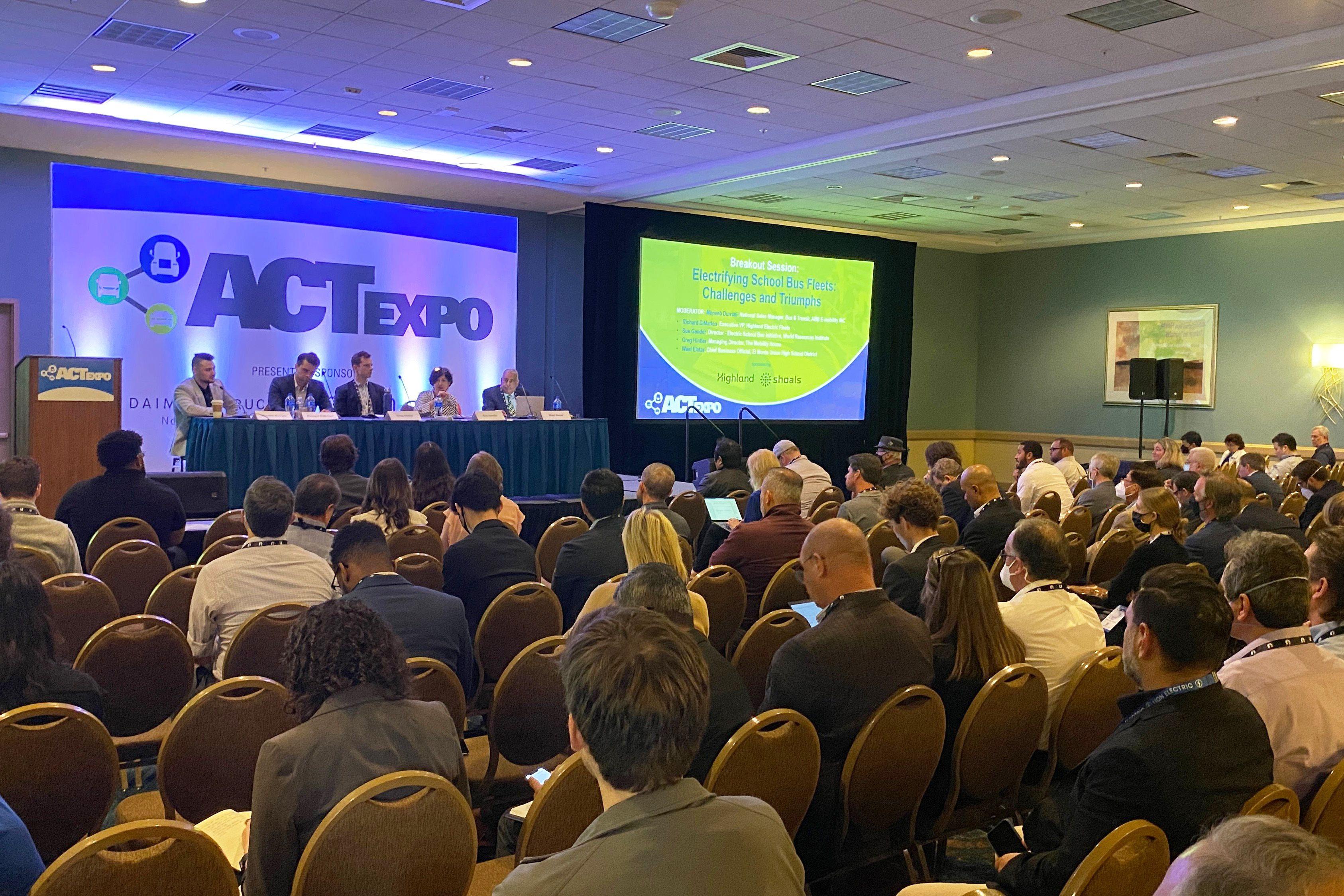1. Supply chain issues are creating order urgency
As the global pandemic and supply chain disruptions stubbornly persist, the semiconductor chip shortage has severely constrained chassis, chargers and switchgear supplies. Electric vehicle manufacturers were forced to slow production, and the entire industry is feeling the pressure.
Key takeaway: Get your electric vehicle orders in now. With deliveries on a projected 18-month or more waitlist, even fleet operators who may not be ready to electrify just yet might consider getting their name on the list as vehicles may not arrive until 2023 or 2024. Uncertainty around when – and even which – equipment will be available in the future sparked conversations on the show floor around the importance of charging technology interoperability. Wary of becoming locked into a single supplier who may or may not be able to meet project timelines, fleet operators want infrastructure that is compatible with multiple manufacturers and charger types to provide options and flexibility into the future.
2. Get ready for scale: everything must be built ‘future proof’
From transit agencies to school districts to last-mile delivery fleets, we’re seeing more and more fleet vehicles go electric. However, many of these fleets are still in the pilot phase for EV charging. Operators are testing out different technologies, their respective interoperability, and creating new processes for fleet management based around charging rather than fueling.
Key takeaway: As these EV projects scale, interoperability and proper charge management will be essential in not only ensuring smooth operation but also to prevent electricity expenses from skyrocketing.
3. Reliability will cause electric vehicle deployment to live or die
Excitement around the U.S. Environmental Protection Agency’s (EPA) newly announced Clean School Busgrant funding was buzzing. But, there was also talk of how schools – and all fleet owners for that matter – can prepare for charging and managing their new electric fleets without any service disruption.
Key takeaway: Buses need to be charged and ready to run each morning and afternoon, which makes establishing appropriate charging infrastructure a critical step in accommodating this new electric demand. What can these districts do? Intelligent charge management systems can optimize for reliability and vehicle availability while simultaneously keeping electricity cost to a minimum. Monitoring and controlling charging from a cloud-based system can be convenient, while systems that include an onsite local controller are even more reliable.
4. Smart charging is critical yet underutilized
Many fleet operators now intuitively understand the value of smart charging strategies to manage charging schedules and grid demand. The question used to be, what is a charging and energy management system (CMS)? Now, people understand the value of CMS, but they want to know specifically what capabilities and features to look for - and, they want to know how much they can save by implementing a CMS into their charging depot project.
Key takeaway: The best charging and energy management solutions offer hardware interoperability, local and cloud-based control and optimization, multi-site interfaces, remote start/stop/restart capabilities, and is backed by field-proven technology. Actually, there is only one charge management system that does all that: it’s called ChargePilot®, and we use it to manage over 700 fleets worldwide. Want to learn more about charging and energy management? Read Why Electric Fleet Operators Are Prioritizing Smart Charging and Energy Management for insight into avoiding electricity bill spikes, balancing high power capacities and load management flexibility.
